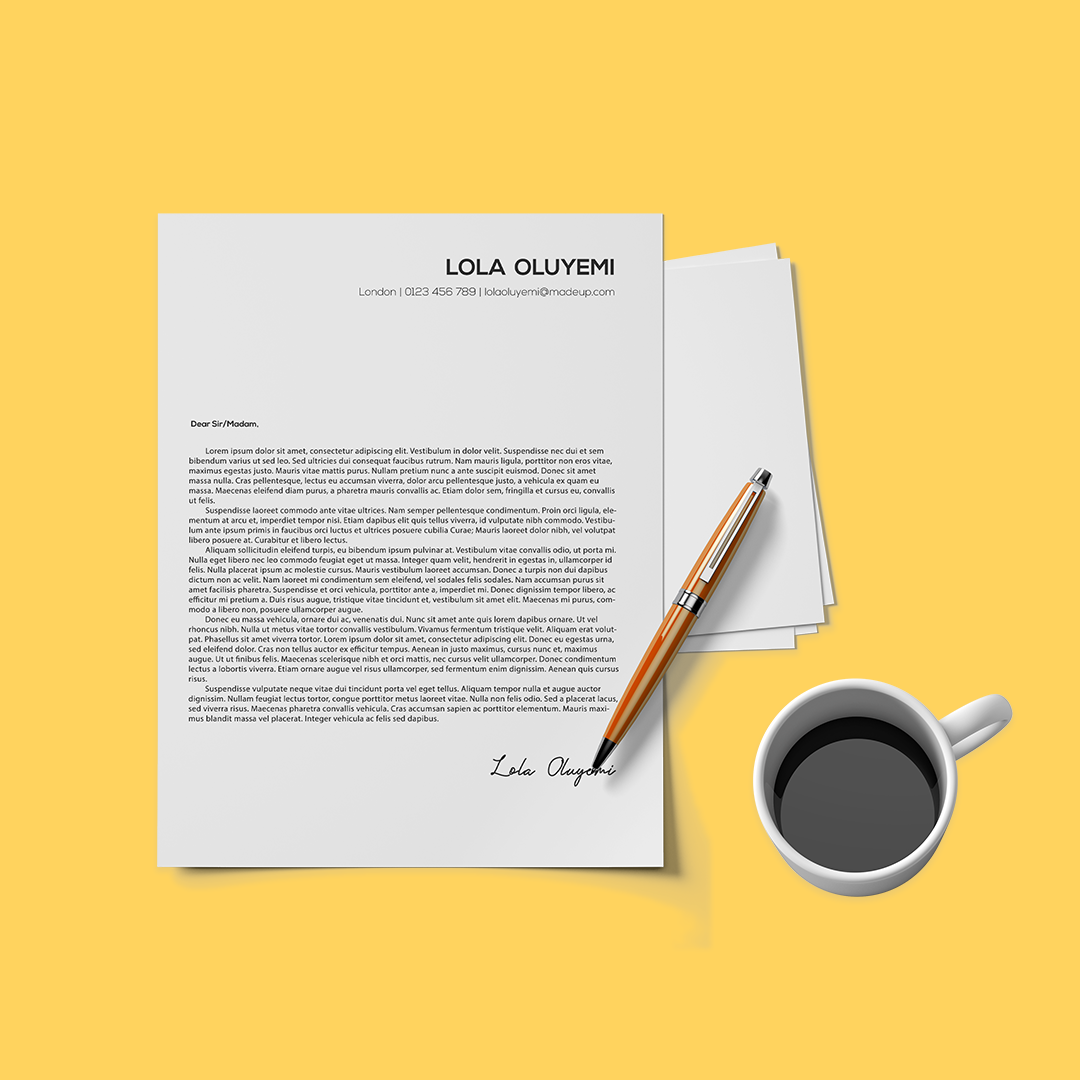After completing my first work experience placement ever in year 10 (I did this at my local youth centre), I realised that I really liked the idea of playing grown-up and visiting different offices. On a serious and honest note, it opened my eyes to various industries and opportunities. The fact that I could visit these places and get a taste of life there was like breaking news to me. However, that excitement was quickly replaced by a bit of fear and a sprinkle of dread after every single application wanted a cover letter. At the start of Year 12, I had no idea what this meant but after reading this post, you should hopefully have a good idea of what a cover letter is and what it does.
Why are they necessary/important?
If your CV contains all or most of your academic achievements and professional experience, a cover letter is an opportunity for you to zoom in on the elements of your experience which make you a suitable candidate for the role. You can think of a cover letter as a ‘love letter’ to the specific company to let them know why someone in your position and with your experience should join the team.
How do I write one?
Glad you asked! There are three main questions your cover letter should answer:
- Why that specific industry? This portion of your cover letter should introduce the employer to the story of how you became interested in that industry. Try to avoid clichés like ‘I’ve always wanted to work in investment banking since I was five’, because for the vast majority of people this isn’t true. Instead, your cover letter should tell the employer the actual first time you became interested in that industry, whether it was a book you read or a webinar you attended. Then, go into detail about how you’ve explored the interest since then: have you attended further webinars or signed up to an industry-specific news source? If you’ve done anything quantifiable, this would also be the perfect place to include it. If you wrote an essay for example or a blogpost on some of you recent research into the industry, let them know!
- Why that specific company/firm? Now that you’ve justified your interest in the industry, there’ll be at least 10 other companies who do the same thing. What makes this company different? Are there any recent news stories about this company that you’ve read recently? If you want to really prove your interest in that company, download their annual report from their website and search (ctrl + f) key information such as their challenges, opportunities and areas of growth they want to focus on. Show off your knowledge of the company and let the employer know why you’ve picked that company in particular among their competitors.
- What transferable skills do you have that make you suitable for the role? You’ve described the industry and the company but now, the employer needs to see exactly how you would fit into the company. What skills have you gained through your part-time work or your extra-curricular activities? Is there a skill you’ve developed in your hobby that would be useful to that role? You don’t always need industry-specific experience but you can show how the organisation and communication skills you gained whilst volunteering as a pupil-librarian at your school for example would help in this new role.
Even if you’re not applying for any specific opportunities at the moment, it’s always useful to know why you’re interested in the industries you’d like to explore. Get your notepad (or a notes page), pick 1-3 industries or fields which interest you and answer these three questions:
- Why am I interested in this industry/role/field?
- Which companies in this industry do I find interesting/attractive? Why?
- Which skills do I have now that would help future me working within that industry? Which skills should I continue developing to help me enter into my ideal field?
Define your interests and keep developing your skills; by the time you’re applying for experience, you’ll be a pro!
